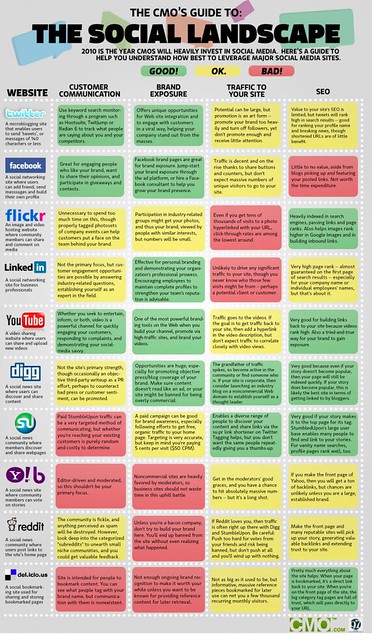From the Congressional Glossary – Including Legislative and Budget Terms
Caucus / Congressional Member Organization / CMO / Congressional Staff Organization / CSO

Caucus is from the Algonquian Indian language, where caucus meant “to meet together.” An informal organization of members of the House or the Senate, or both, that exists to discuss issues of mutual concern and possibly to perform legislative research and policy planning for its members. Congressional Caucuses, formally called Congressional Member Organizations, are formed by members of Congress to provide a forum for issues or legislative agendas. A number of caucuses exist in the House and their primary function is to draw attention to issues of importance to their membership. There are regional, political or ideological, ethnic, and economic-based caucuses. Members of both the House and Senate may participate in a CMO, but at least one of the Officers of the CMO must be a member of the House. The participation of senators in a CMO does not impact the scope of authorized CMO activities in any regard.
Members of Congress may form a Congressional Member Organization (CMO) in order to pursue common legislative objectives.
Congressional Member Organizations (CMOs) are “study groups, conferences, coalitions, or caucuses, that include only members of Congress and focus on legislative and political issues of common interest or concern.” Among the CMOs are the Congressional Black Caucus, Congressional Caucus for Women’s Issues, Minor League Baseball Caucus, Friends of Norway Caucus, and the Internet Caucus.
These groups publish newsletters, legislative updates, roll call vote analyses, research reports and “Dear Colleague” letters–largely documents that track legislative developments.
Good Question: What Is A Congressional Caucus?
A Congressional Staff Organization (CSO) is an organization, a majority of whose members are House employees, that exists for the purpose of facilitating interaction among congressional staff. Each Congress, CSOs must register with the Committee on House Administration. At least one officer of a CSO must be an employee of the House, and all officers must be employees of the House or Senate.
Among the CSOs are the Capitol Hill Bible Study Staff Association, Catholic Staff Association, Congressional Hockey Caucus Staff Association, Hispanic Conservatives Congressional Staff Association, House Chiefs of Staff Association, and Women’s Congressional Staff Association.
Another type of CSO is the Congressional Spouse Organization, such as The Congressional Club:
An active member is the spouse of a sitting or former Member of Congress, Supreme Court Justice, or Member of the President’s Cabinet; and once a member, always a member, upon payment of annual dues. Associate membership is only open to active members’ adult children or spouses of adult children.
Also see Blue Dog Coalition / CMO; “Dear Colleague” letters; § 4.201 Congressional Spouse Organizations, § 5.121, Selected Caucuses and Informal Groups, and § 6.22, Sample “Dear Colleague” Letter, in Congressional Deskbook.
More
- Committee on House Administration
- Congressional Member (CMO) and Staff (CSO) Organizations – listings from the Committee on House Administration
- CMO/CSO Registration Form – Committee on House Administration
- Congress: Informal Groups, Caucuses, and Congressional Member Organizations (CMO) – Hobnob Blog
- Party Caucuses in Congress
- Hill Staff Organizations and Groups – HillZoo
- “Congressional Staff: Duties, Qualifications, and Skills Identified by Members of Congress for Selected Positions,” CRS Report R46262 (59-page PDF
 )
) - “Congressional Member Organizations: Their Purpose and Activities, History, and Formation,” CRS Report R40683 (28-page PDF
 )
) - “Congressional Member Organizations (CMOs) and Informal Member Groups,” CRS Insight IN11036 (5-page PDF
 )
) - Caucuses of the United States Congress – Wikipedia
- “The Most Surprising Congressional Caucuses: Bourbon, Babies, Motorcycles And More,” by Elyse Siegel and Eleni Angelides, HuffPo, July 19, 2010
- 112th Congress Congressional Staff Organizations (CSOs) (4-page PDF
 )
) - 114th Congress Congressional Staff Organizations (CSOs) (5-page PDF
 )
) - 115th Congress Congressional Staff Organizations (CSOs) (7-page PDF
 )
) - 115th Congress Congressional Member Organizations (CMOs) (105-page PDF
 )
)
Courses
- Congressional Operations Briefing – Capitol Hill Workshop
- Drafting Federal Legislation and Amendments
- Writing for Government and Business: Critical Thinking and Writing
- Custom Training
- Drafting Effective Federal Legislation and Amendments in a Nutshell, Audio Course on CD
- Congress, the Legislative Process, and the Fundamentals of Lawmaking Series, a Nine-Course series on CD
Publications

Legislative Drafter’s Deskbook: A Practical Guide

Pocket Constitution

Citizen’s Handbook to Influencing Elected Officials: A Guide for Citizen Lobbyists and Grassroots Advocates

Congressional Procedure
CongressionalGlossary.com, from TheCapitol.Net
For more than 40 years, TheCapitol.Net and its predecessor, Congressional Quarterly Executive Conferences, have been teaching professionals from government, military, business, and NGOs about the dynamics and operations of the legislative and executive branches and how to work with them.
Our custom on-site and online training, publications, and audio courses include congressional operations, legislative and budget process, communication and advocacy, media and public relations, testifying before Congress, research skills, legislative drafting, critical thinking and writing, and more.
TheCapitol.Net is on the GSA Schedule, MAS, for custom on-site and online training. GSA Contract GS02F0192X
TheCapitol.Net is now owned by the Sunwater Institute.
Teaching how Washington and Congress work ™

